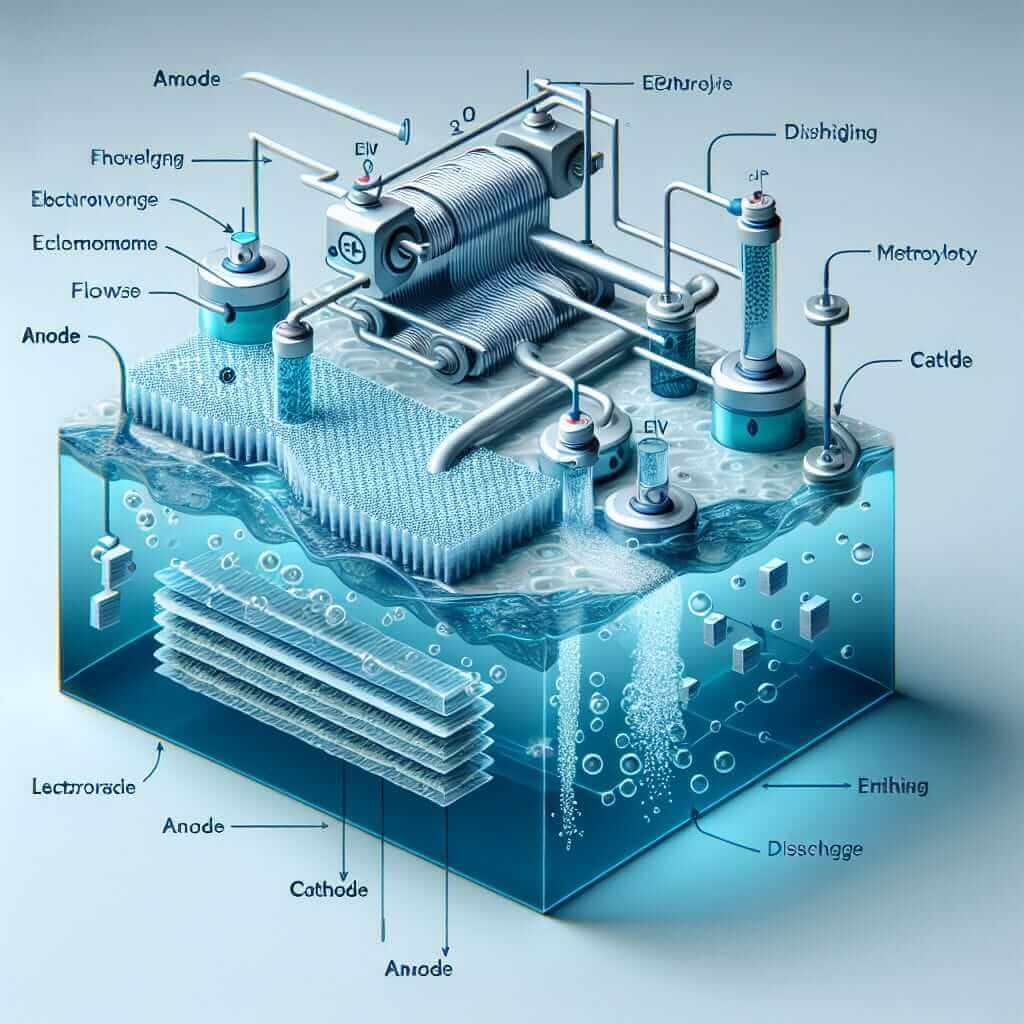Studying for the IELTS exam, particularly the Reading section, requires a strategic approach and understanding of common themes. One relevant and frequently discussed topic is “Technological solutions to energy storage”. This theme aligns with the increasing global interest in renewable energy and sustainability solutions. Given its current importance, this topic has appeared multiple times in historical IELTS exams and is likely to continue being relevant.
Reading Practice: Technological Solutions to Energy Storage
Passage: Technological Solutions to Energy Storage
Energy storage is an essential component of modern energy systems, particularly in the context of renewable energy. With the increasing adoption of renewable energy sources like wind and solar power, which are intermittent, effective energy storage solutions have become critical. The challenge lies in storing the energy produced during peak generation times for use during periods of high demand.
One prominent solution is the development of advanced battery technologies. Lithium-ion batteries have been the industry’s favorite due to their high energy density and relatively low cost. However, researchers are continually seeking more innovative solutions to overcome the limitations of lithium-ion batteries, such as limited lifespan and safety concerns.
Flow batteries present an alternative that stores energy in liquid electrolytes inside external tanks. This system offers scalability and longevity, making them suitable for large-scale energy storage applications. Vanadium redox flow batteries, in particular, have shown promise due to their ability to maintain capacity over numerous charge and discharge cycles.

Another critical area of research is in mechanical storage systems like pumped hydro and compressed air energy storage (CAES). Pumped hydro refers to the storage of energy by pumping water uphill when excess energy is available and releasing it through turbines to generate electricity during high demand. Similarly, CAES involves storing compressed air in underground caverns and releasing it to drive turbines when needed.
Thermal energy storage (TES) is also gaining traction. This technology stores heat generated from renewable sources (like solar thermal plants) in materials such as molten salts. The stored heat can then be used to produce electricity, even when the sun isn’t shining.
As the demand for reliable and sustainable energy grows, technological solutions to energy storage will continue to evolve, playing a pivotal role in the transition to a greener future.
Questions
Multiple Choice
-
According to the passage, why are advanced battery technologies significant in energy storage?
a) They are the most economical option.
b) They have high energy density and cost efficiency.
c) They are the latest innovation in technology.
d) They are the easiest to manufacture. -
What is unique about flow batteries compared to lithium-ion batteries?
a) They use solid electrolytes.
b) They are cheaper to produce.
c) They store energy in liquid electrolytes.
d) They have shorter lifespans.
Identifying Information (True/False/Not Given)
- True/False/Not Given: Pumped hydro storage releases compressed air to generate electricity.
- True/False/Not Given: Thermal energy storage (TES) can be used to store heat from solar plants.
Answer Key and Explanations
Multiple Choice
-
b) They have high energy density and cost efficiency.
- Explanation: The passage mentions that lithium-ion batteries are favored due to their high energy density and relatively low cost.
-
c) They store energy in liquid electrolytes.
- Explanation: Flow batteries are unique because they store energy in liquid electrolytes within external tanks, as opposed to lithium-ion batteries which do not.
Identifying Information (True/False/Not Given)
-
False
- Explanation: Pumped hydro storage pumps water uphill and releases it through turbines, not compressed air.
-
True
- Explanation: The passage states that thermal energy storage (TES) stores heat generated from renewable sources like solar thermal plants.
Common Mistakes and Tips
Common Mistakes:
- Misinterpreting technical terms: Ensure you understand the context and specific definitions presented in the passage.
- Overlooking details: Pay attention to details that may distinguish between similar concepts, such as different types of batteries or storage systems.
Tips for Success:
- Practice skimming and scanning: Quickly locate key information without reading every word.
- Enhance vocabulary: Focus on understanding industry-specific terms related to energy and technology.
Key Vocabulary
- Intermittent (adj.): /ˌɪntəˈmɪtənt/ – occurring at irregular intervals.
- “The intermittent nature of solar power requires efficient energy storage solutions.”
- Electrolytes (n.): /ɪˈlɛktrəˌlaɪts/ – substances that produce an electrically conducting solution when dissolved in a polar solvent.
- “Flow batteries use liquid electrolytes stored in external tanks.”
- Scalability (n.): /ˌskeɪləˈbɪlɪti/ – the capability to scale or be scaled up.
- “Flow batteries offer scalability, making them suitable for large-scale applications.”
- Compressed air energy storage (CAES) (n.): – a method of storing energy by compressing air.
- “CAES stores compressed air underground for later use in electricity generation.”
Grammar Highlight
Relative Clauses:
Relative clauses are used to provide extra information about a noun. Example:
- “Flow batteries, which store energy in liquid electrolytes, offer scalability.”
Formula:
- Main Clause + Relative Pronoun (who/which/that) + Relative Clause
Example:
- “Lithium-ion batteries that have high energy density are popular.”
Conclusion
Regular practice with passages like this helps build comprehension skills necessary for the IELTS Reading test. Focus on different question types, understand the context, and expand your vocabulary for better scores. Remember, persistence and consistent practice are key.
Good luck with your IELTS preparation!